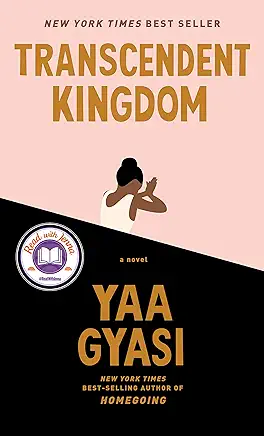
Gifty, the first-person narrator, is a Ph.D. student at Stanford University School of Medicine. Her research question, as stated in the novel, is:
“Could optogenetics be used to identify the neural mechanisms involved in psychiatric illnesses where there are issues
with reward-seeking, like in depression, where there is too much restraint in seeking pleasure, or drug addiction, where
there is not enough?” (p. 44).
She is working with laboratory mice, but she has formulated her research goals to understand her mother’s depression and her brother’s death due to a heroin overdose. Her mother is living in her small California apartment, and the depression has been a huge issue in her mother’s life since Nana, her son died.
Gifty tells the story of her parents’ immigration to the United States from Ghana and her brother’s and her own life stories as flashbacks while conveying the present story of her life at Stanford. The writing flows beautifully as Gifty describes Ma’s experiences working as a caretaker and her father’s work as a school custodian. Although Chin-chin Man, Gifty’s father, wanted to leave Ghana, he eventually deserts his family and returns to his homeland to start life anew.
Nana had been a gifted athlete, first in soccer and then basketball. The absence of his father and the discrimination he faces in his Alabama neighborhood affect him greatly. He is not seen as a person but as a phenom in sports. After a minor injury, a doctor prescribes Oxycontin and his addiction begins. Once he was hooked, his life changed, and even after reasonable attempts at rehabilitation, he always relapsed and eventually died. One of Gifty’s reactions was a feeling of shame. Her mother became depressed. Since she didn’t believe in mental illness and was distrustful of psychiatrists, her mother suffered in silence. Gifty worried and became determined to understand depression and addiction through her college studies and career goals.
The family’s participation in a white southern church in Alabama provides many real-life experiences of blatant racism. Yet, for many years, Gifty believes in the church’s offerings and wants to be saved as a Christian. She doesn’t start questioning her religious upbringing until young adulthood. She always keeps some vestiges of Christianity close to her heart even when she has rejected most of what she had once believed.
This heartrending story is beautifully written and ends on an optimistic note after Gifty learns some life lessons, processes the value of relationships, and learns to trust. The title refers to transcendence at many levels. This quote from near the end of the novel sums it up without providing spoilers: “I wish I were trying to figure out how to clone an alien, but my work pursuits are much more modest: neurons and proteins and mammals. I’m no longer interested in other worlds or spiritual planes. I’ve seen enough in a mouse to understand transcendence, holiness, redemption. In people, I’ve seen even more.” (p. 264) Kindle Edition.


